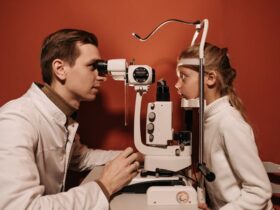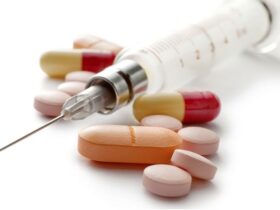Binge eating disorder is characterised by recurrent binge eating episodes.
In each episode, the individual eats a much larger food than the majority of the population would eat in the same amount of time and then experiences a feeling of guilt. “It does not respond to a feeling of hunger but situations of anxiety, discomfort and emotional instability. In addition, it occurs in solitude and, mainly, in the afternoon-night.
Another relevant aspect is that, unlike those who suffer from bulimia, those affected by binge eating disorder do nothing to compensate for this excess intake ( neither inducing vomiting, purging, nor intense exercise ).
Incidence
There are no specific extensive studies on the incidence and prevalence of this disorder based on data on other eating disorders and figures recorded in other countries that it could affect approximately 3 per cent of the population.
As for the profile of those affected, it occurs more in women (only 20-30 per cent are men) and in a higher age range than those who suffer from anorexia or bulimia.
Causes
As in other eating disorders, the causes of binge eating disorders are multifactorial.
Neurobiological alterations related to greater vulnerability have been described. Therefore, it can be affirmed that “there is a biology that can determine this disorder”there seems to be a family pattern that would suggest the influence of genetic factors .”
But there are other possible causes, and determining which is more important is not always possible. Psychological ones should be highlighted, such as lack of self-esteem, anxiety, difficulties in interpersonal relationships, and problems coping with stress.
Also, in many cases, we can talk about family causes. Here the abuses suffered in childhood stand out, but also the conflicts maintained in the family.
Finally, the social causes are not negligible, embodied in the cultural pressure around thinness. However, “this social pressure would be less significant in binge eating disorder than in anorexia or bulimia“.
Symptoms
The following elements characterise a binge eating episode:
- Intake in a given period of a quantity of food is greater than what most people would eat in a similar period under similar circumstances.
- Feeling of lack of control over what is ingested during the episode.
- Eating much faster than normal.
- Eat until you feel unpleasantly full.
- Eat large amounts of food when you don’t feel hungry.
- Eating alone due to the embarrassment felt by the amount that is ingested.
- Then feel disgusted with oneself, depressed or very ashamed.
In addition, those with the disorder experience intense discomfort regarding binge eating.
Finally, a defining factor of this disorder is that it is not associated with the recurrent presence of compensatory behaviour (vomiting, purging, etc.).
Prevention
The prevention of binge eating disorder should be based on the following aspects:
Warn of diets and unhealthy behaviours for weight control. Make it clear that to lose weight. You do not have to stop eating.
- Promote a positive body image.
- Avoid mistreatment associated with weight in the school environment.
- Promote emotional education from childhood.
- Instil in children the importance of healthy eating.
Diagnosis
To diagnose this psychiatric disorder, binge eating has to occur at least once a week for three months.
Many affected first go to an endocrinologist to treat their obesity, and this specialist detects the disorder and refers them to a psychiatrist. “In other cases, as there is already a certain awareness and the disorder is better known, they go directly to the psychiatrist.
Treatments
“A multidisciplinary team should treat people with this disorder specialised in eating disorders, including psychologists, psychiatrists, nutritionists and doctors,”. The psychologist adds that a “global intervention is required that would cover various aspects of the patient’s life, the management of emotional and food control, review of unhealthy habits and routines, provision of tools in the face of stress and emotional management, and work in the family and social framework.
The treatment has two main aspects: psychological and pharmacological. “The psychological therapy that we indicate is in a group, with other patients. The objective is for the affected person to express himself “openly, without stigmas”.
Regarding pharmacological therapy, antidepressants from the serotonin reuptake inhibitors and mood stabilisers are used to control impulsivity.
This pathology is very often associated with other anxiety or depressive disorders. In addition, as in other eating disorders, there are those affected who “consume certain substances (caffeine, tobacco, stimulants .) for different reasons: to facilitate appetite and weight control, counteract the feeling of lack of energy, as emotional regulators”. However, “in many cases, its use could be non-specific and determined by impulse control difficulties”.
The foods eaten during binge eating produce the greatest gratification: carbohydrates, sweets, and high-fat products.









